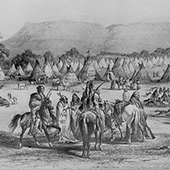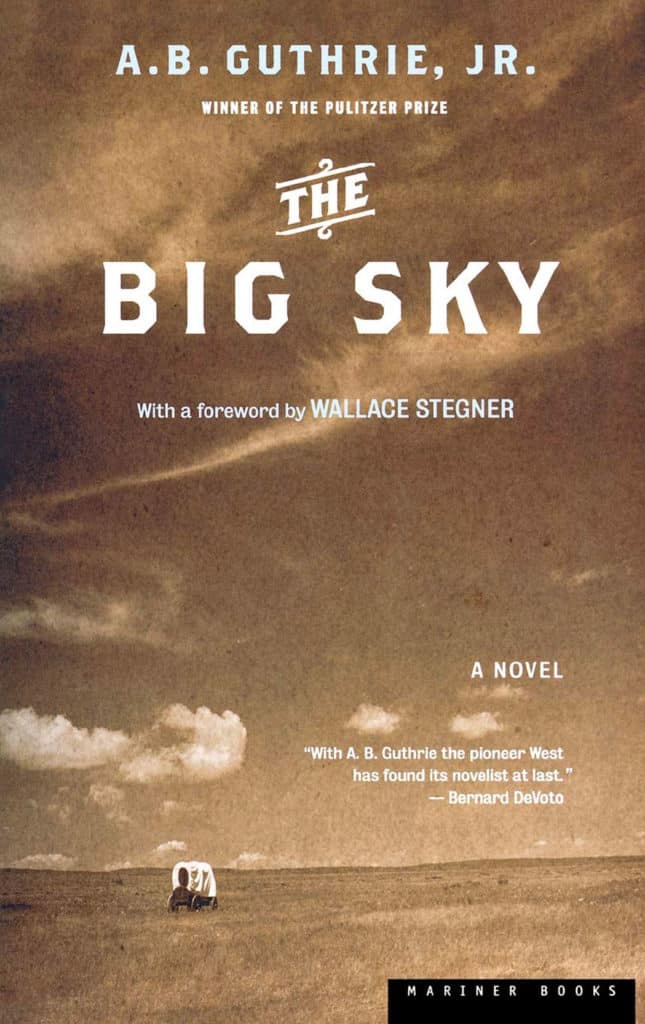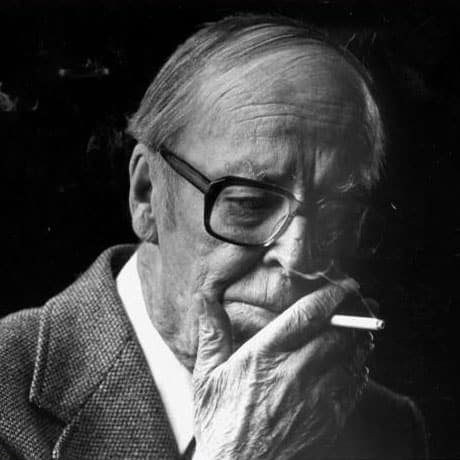About the Book
The Big Sky
Published in 1947, The Big Sky was Guthrie’s attempt to portray a truer version of the west than had been written up to that point—starting with Boone Caudill, the story’s violent and alienated anti-hero. Guthrie may have aimed to de-romanticize life in the West but over 60 years later the title of his best known work has been used for tourism campaigns, and is plastered on ski resorts, microbreweries, and hundreds of other businesses across Montana.
The movie version of The Big Sky hit the big screen in 1952. The film was directed by Howard Hawks and starred Kirk Douglas and Elizabeth Threatt.
A few years later, A.B. Guthrie himself wrote screenplays for two iconic western films: Shane, starring Alan Ladd and Jean Arthur; and The Kentuckian, starring Burt Lancaster.
While the settings in The Big Sky clearly reference actual locales, it is understood that the book—including its places—is ultimately the product of the author’s imagination. The intent of this literary map is to enrich the reading experience by interpreting those places, not to render them literally or definitively.



